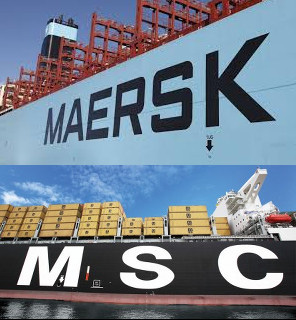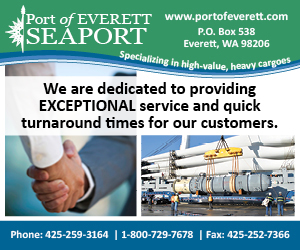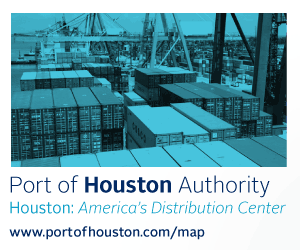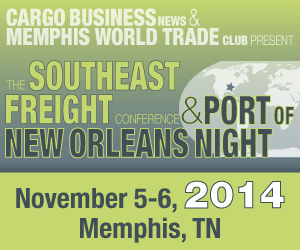
Tuesday, July 22, 2014
Top Story
Drewry: Carrier alliances necessary to cut costs and improve service
 Despite China's rejection of the P3 Alliance, container line consortiums will continue to grow in importance, according to the latest issue of Container Insight from the analysts at Drewry Maritime Research.
Despite China's rejection of the P3 Alliance, container line consortiums will continue to grow in importance, according to the latest issue of Container Insight from the analysts at Drewry Maritime Research.
The article notes the formation of 2M, the newest vessel sharing agreement between Maersk Line and MSC, is only the beginning of what it calls the latest round of mega-alliance negotiations.
Drewry reports that Evergreen and the CKYH alliance (Cosco, K Line, Yang Ming and Hanjin Shipping) are still talking to the U.S. Federal Maritime Commission about extending their Asia-Europe operating agreement to include the U.S., and CMA CGM has yet to announce its new partners, which industry experts speculate will likely be China Shipping Container Lines and United Arab Shipping Company.
Container carrier partnerships handle the majority of East-West container trades, the article states, and less cohesive vessel-sharing agreements take care of a big slice of the North-South routes. As ships get bigger, so will the cooperation agreements in order to create economies of scale, it said.
The EU's recent decision to extend its regulation on ocean carrier consortiums for another five years to 2020 is good news for alliances, according to the publication. The rule basically frees consortia members from anti-trust considerations as long as the combined market share is 30 percent or less.
The article notes that market share, generally measured in terms of cargo carried, can get tricky when trying to review the scope of the trade lane and the different ways it can be served.
Drewry says it regularly monitors consortia market shares in a wide variety of trade lanes after taking into account estimated space allocated to wayport and out-of-scope cargo, but before considering slot charters/swaps with other lines, coming up with a useful, but not "strictly accurate" guideline.
For example, using this guideline, Drewry calculates that using data from May 2014, the new Maersk-MSC relationship would be operating with a 35.4 percent market share of effective vessel capacity on the Asia-Europe trades.
Drewry concludes that the new alliances are needed, since the shipping industry as a whole desperately needs to cut costs and improve service frequency, and nothing else short of mergers can accomplish that.
More Newswire stories
Maersk announces Asia-Europe freight increase of $450 per-TEU
Greenbrier and Watco complete railcar repair joint venture
South Carolina ports post 8 percent container growth for FY2014
Hackers attack shipping/logistics firms with malware embedded in scanners


Home | The Magazine | Conferences | Port Handbooks | Newswire | Advertise | Ocean Schedules | Contact
CBN Archives | About CBN | Subscribe to CBN | Marine Fuels Conference | Southeast Freight Conference | Heartland Shippers’ Conference | Port Productivity Conference | Pacific Northwest Ports Handbook
Golden Gates Ports Handbook | Southern California Ports Handbook | Buy Handbooks | Subscirbe to Newswire | Newswire Archives | Upload Files







